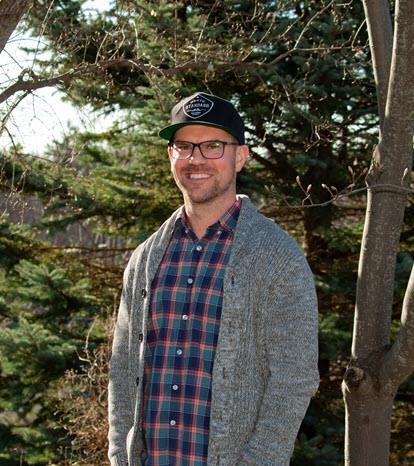Getting accurate, rigorous data on the pandemic’s impact on rural Ontario should inform better support, says Dr. Leith Deacon
By Jackie Clark
Staff Writer
Farms.com
A researcher at the University of Guelph is collecting detailed data about the impact of COVID-19 on residents of rural Ontario. This information can provide advocates, non-profits, policymakers and other experts with the information that they need to garner funding and build effective policies and programs for rural areas.
“I’m originally from just outside of North Bay Ontario,” Dr. Leith Deacon told Farms.com. He’s a professor in the School of Environmental Design and Rural Development, and lead on the project. “My interest in small towns is legitimate and genuine.”

Deacon had been working with Perth-Huron United Way and started discussing the impact of COVID-19 on rural areas with the team in June 2020.
“I’d heard a provincial government official make a statement on CBC on the difficulty that COVID was going to pose for small-business owners,” Deacon explained. “They suggested that all small business owners work very hard to embrace the various platforms like Uber Eats, DoorDash. I’m sitting there in my Uber Eats-less community, my DoorDash-less community and thinking: what about us?”
So, Deacon “put together a quantitative survey that gathers individual level data that is hyper-granular,” he said. The survey includes demographic data, including gender, ethnicity, age and income level.
The following sections asked about wellbeing, economic development, anxiety levels and response, Deacon explained. The economic section helped to better understand how people living in rural areas spend money and access resources.
Response questions included “Are you getting the flu vaccination? Are you seeing your general practitioner regularly? Do you have a savings account?” he explained. They survey asked about life before pandemic to get a baseline, and then asked the same questions, asking the responder to think about life since the start of the pandemic.
“That allowed us to see how things have changed,” Deacon said. “So, if you’re someone who’s never accessed mental health supports and now you have, we better make sure that our capacity has increased because we’re having more people access those services.”
The demographic data allowed researchers to identify indications of vulnerability, he added. For example, we know that women are disproportionately responsible for childcare, and school closures may impact them more than men.
Indeed, “our data found that young females have been disproportionately impacted,” he said.
Deacon collected data through mail-outs and digital submissions.
“In total we received just under 3600 completed surveys,” he said.
And now, with funding from OMAFRA, the study will be expanding to North Durham, Dufferin, Middlesex, Elgin, Bruce, Grey and Oxford counties. The counties are all on board to help with communication to their residents.
“It’s really important that people participate in this,” Deacon explained. Everyone is chatting about the impact of COVID-19 on our lives, but “without rigorously collected, valid data, those conversations will not help you secure additional funding.”
He hopes to collect data from everyone, including the most vulnerable residents of participating regions.
Rural regions can often be left out of policymaking or program delivery discussions. This data can help identify specific needs in rural areas that allow for programming and funding to provide people living in rural areas struggling with the impact of the pandemic with more effective support.
An example of this process already occurred in Perth. While watching Deacon present his data, the director of ambulatory care got in touch saying that they had known their region needed more capacity but hadn’t had the data to show it. Using a data package from Deacon, they were able to secure more funding to expand ambulatory care for the region.
The conversations around mental health as a result of this survey have been astounding, Deacon said. His goals are to “reduce that stigmatization, increase those conversations, and ultimately design policies and programs that enable the populations they serve to get what they need.”
In the future “I would love to see this expanded to a national scale,” he said. “The government needs to put a little bit of money in here, I think, at least, to allow good data to be collected that can allow programs to be developed in response to the reality of different geographies.”
AnjelaGr\iStock\Getty Images Plus photo